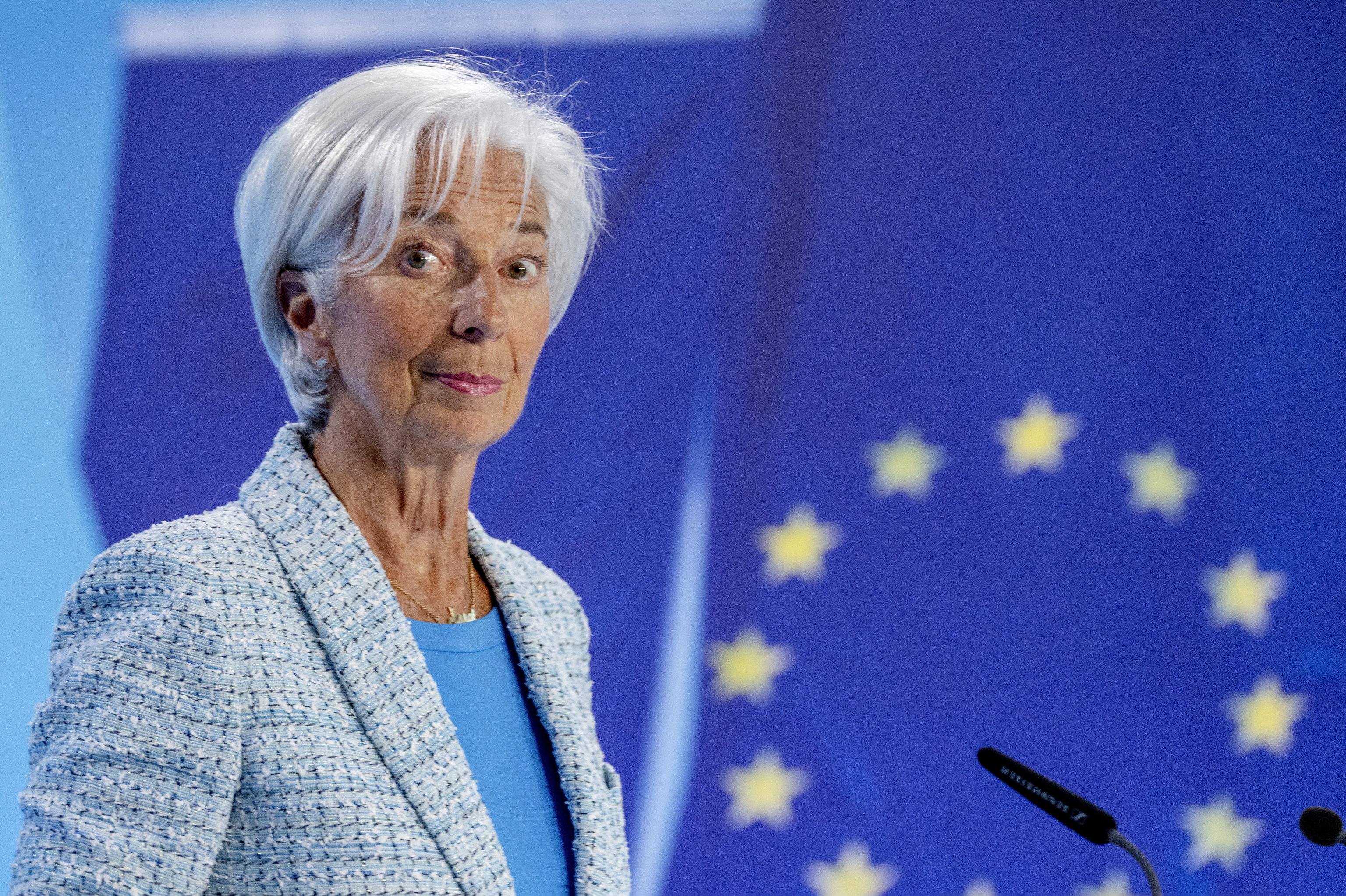Christine Lagarde will reappear this Thursday in Frankfurt, 15 days after Donald Trump announced, surrounded by roses at the White House, the beginning of a trade war - as he conceived it two weeks ago - and now it is uncertain what will happen. Nevertheless, the market expects two things from the President of the European Central Bank (ECB): to announce a new interest rate cut of another 25 basis points and to demonstrate publicly the ability to intervene in the market to calm the situation in case the US plan to create a new world order triggers a market catastrophe, especially in the equity and debt markets. Similar to what the Federal Reserve stated last week when the US bond was plummeting, with investors seeking refuge elsewhere. Bringing out a new monetary bazooka.
It is expected that the institution will undertake the seventh consecutive interest rate cut since starting this path in June of last year. The return path involves bringing interest rates closer to levels considered reasonable for a growing economy, around 2%, with inflation under control after a cumulative cut of 150 basis points and an additional 25 points to be approved at the ECB's monetary policy council meeting this Thursday. The latest Eurozone inflation data was 2.2% at the end of March.
If expectations are met, the European Central Bank will bring the deposit rate to 2.25%, the main refinancing rate to 2.4%, and the marginal lending facility rate to 2.65%.
There will be no revision of the macroeconomic outlook this Maundy Thursday, but there will be one in June - at the next meeting - which is crucial for the market to determine whether the interest rate cut will accelerate or not. "We maintain our forecast of a terminal deposit rate of 1.5% by September. The risk of delay has decreased, while the risk of deeper cuts has increased, including moves of more than 25 basis points as early as June," say Bank of America analysts, who believe, following this argument, that Trump's 90-day pause has done Lagarde a favor because otherwise, "the debate within the ECB could have been much more uncomfortable." The strength of the euro, which has risen 10% against the dollar this year, is also not helpful in case of a trade war as it makes European products less competitive. The weakness of the US currency is evident as it has plummeted another 11% against the yen and the Swiss franc, considered safe-haven currencies by investors.
The trade war that Donald Trump has opened with the rest of the world, particularly against China, has disrupted the market's expectations, among other reasons, because the ECB learned years ago (following the Trichet shock) that it is better not to surprise investors and to gradually communicate their steps. "Taking a break seemed appropriate a few months ago," say ING analysts, "especially after the euphoria following Germany's fiscal plan and the clear European intention to increase defense spending, which had clearly improved growth prospects for the Eurozone." In a historic decision, Germany approved at the end of March to increase the borrowing limit with an investment plan in defense and infrastructure worth 500 billion euros. They can afford it, analysts say, considering that their debt is equivalent to 62% of GDP, 20 points lower than during the pandemic.
With the decision already largely anticipated for this council, analysts expect Lagarde to "keep all options open to adapt future monetary policy decisions at each meeting, based on available data, economic projections, and risk assessments, which have changed significantly since Wednesday, April 2," according to Generali. This also implies an acceleration of interest rate cuts and perhaps a mention of the ECB's ability to intervene in the market, as demonstrated recently in some minor crises such as the US banking crisis following Silicon Valley Bank two years ago or during Liz Truss's brief presidency in the UK. This will require Lagarde to depart from the usual discourse she has accustomed investors to, in terms of data dependence and decisions made meeting by meeting, to give a boost to the markets and reinforce their confidence in the face of the erratic decisions of the world's largest economy.
